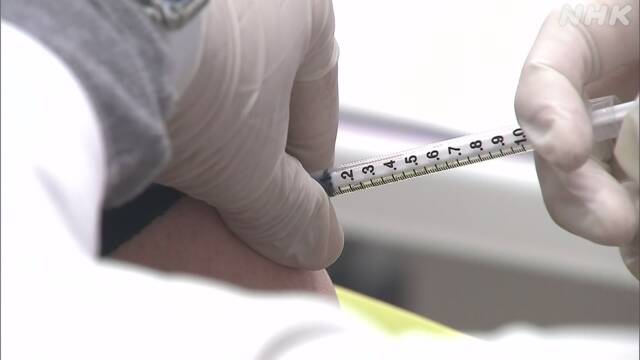In South Korea, vaccination with the new coronavirus developed by AstraZeneca and others in the United Kingdom has started, but from the 27th, vaccination with the vaccine developed by Pfizer and others will also start.
In South Korea, vaccination with the new coronavirus developed by British pharmaceutical giant AstraZeneca and others began on the 26th.
In addition, South Korea will contribute funds to the "COVAX Facility," a framework established by the World Health Organization (WHO) for the fair distribution of vaccines, and will receive vaccines for 10 million people.
Of these, more than 58,000 vaccines developed by Pfizer and others in the United States will arrive at Incheon Airport on the 26th, and inoculation will begin on the 27th for medical professionals.
The Korean government has secured vaccines for 79 million people, which exceeds the total population, and by November, more than 70% of the population will be vaccinated, and many people will be immunized and the infection will spread. We are aiming for a so-called "herd immunity" state that makes it difficult.
On the other hand, South Korean conservative media have criticized the Korean government's response, saying that the start of vaccination was the latest among the member countries of the OECD (Organization for Economic Co-operation and Development).
Maintaining regulations such as prohibiting private meetings of 5 or more people
In December last year, the number of people infected with the new coronavirus per day exceeded 1,200, the highest number in South Korea.
In principle, the Korean government has taken various measures such as prohibiting private meetings of five or more people, including dinner, and limiting the business hours of stores.The number of infected people confirmed on the 25th was 406. It was a person.
Vaccination has begun, but the South Korean government has decided to maintain the level of regulatory measures, and President Mun also called for continued thorough infection prevention measures on the 26th.
Korean vaccination plan
According to the South Korean Disease Control Agency, the Korean government has so far signed a contract to receive vaccines from AstraZeneca in the United Kingdom, Pfizer and Moderna in the United States, Johnson & Johnson, a biotechnology company, and Nova Bucks. is.
In addition, WHO = World Health Organization and others have contributed funds to the "COVAX Facility", a framework established for the fair distribution of vaccines, and like other countries, it can receive up to 20% of the population. I can do it.
Together, they have a vaccine for 79 million people.
This is 1.5 times the population of South Korea, which is about 52 million.
Vaccination will start from medical professionals and inpatients in hospitals, and will be expanded to elderly people aged 65 and over from May, and to adults under 65 from July. ..
The environment for vaccination will be set up in about 10,000 locations nationwide.
Inoculation is free, but you cannot choose the type of vaccine.
The start of vaccination is the last criticism in OECD member countries
In South Korea, there are criticisms that the start of vaccination was delayed compared to other countries.
Conservative media said it was the slowest of the 37 member countries of the OECD (Organization for Economic Co-operation and Development), and only appealed for infection control that the Moon Jae-in administration called "K epidemic prevention". It is said that it was because he was enthusiastic about it.
In addition, it has been pointed out that there is insufficient data on the efficacy of vaccines developed by AstraZeneca and others, which started vaccination on the 26th, for vaccinations aged 65 and over, and the Korean government changed the original plan. For the time being, the target of inoculation was under 65 years old.
As the demand for vaccines increases worldwide, it is unclear whether the supply of vaccines to South Korea will proceed smoothly, and some have questioned the Korean government's vaccination schedule.

